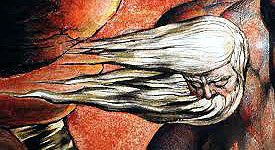
Christianity Considered Part III
Holy Sonnets: Batter My heart, Three-person’d God
By John Donne (1572–1631)
Batter my heart, three-person’d God, for you
As yet but knock, breathe, shine, and seek to mend;
That I may rise and stand, o’erthrow me, and bend
Your force to break, blow, burn, and make me new.
I, like an usurp’d town to another due,
Labor to admit you, but oh, to no end;
Reason, your viceroy in me, me should defend,
But is captiv’d, and proves weak or untrue.
Yet dearly I love you, and would be lov’d fain,
But am betroth’d unto your enemy;
Divorce me, untie or break that knot again,
Take me to you, imprison me, for I,
Except you enthrall me, never shall be free,
Nor ever chaste, except you ravish me.
I have misgivings about this segment, my attempt to directly comment upon Nietzsche’s flaming anti-Christianity tirade. Christianity has been, and continues to be many things. “Christianity” is an empty, un-tethered word when cleaved from the church, the institution by which Christian existence and forms of life are expressed. I’ll not argue for a matrix of ideas removed from actual historical expression, a futile attempt to support the purity (truth-value) of an abstraction. To be religious without a community makes no sense.
Strange that I continue to care about any of this, since I thought myself to be on the outside of it all. But I do care. The residue of an upbringing is there, as real (or unreal) as any possible worlds. Does anything at all ex-ist without the synthetic work of the mind? Wittgenstein, a 20th century intellectual put the it this way: “The limits of my language are the limits of my world.” – Tractatus Logico-Philosophicus
Nietzsche writes that Christianity is based upon the premise that God (all-powerful, all-knowing, just and loving) works in a manner that is opaque to humans. That is, what happens to you and me, the accidents, the happenstances of life are all the mysterious effects of God’s love for you and I. God does what God does, with no basis for external critique. So, where does that leave me?
This famous sonnet poem by John Donne throws light upon the matter. Among the highest priorities for Donne is to fulfill the ideals of his faith. In this poem, which is also a prayer, Donne reveals that he has a long way to go, and kindly persuasion is unlikely to be effective. The knocking, breathing, shining, mending do not suffice. Thus he requests a full-on assault by his god. Donne desires to be overthrown, bent, broken, by force made into something other than he is. Donne confesses that his own reason is flawed, unreliable. Donne believes that he is in thrall to God’s sworn enemy, the devil. The concept-image Donne chooses to describe his prospect for liberation amounts to a request for divine rape. It is difficult to entertain a more violent vocabulary, ideas laced with bodily violation than are found in this poem.
I think that Nietzsche was right about Christianity and it’s dark god.
Still a sterile secularism is not enough, it seems to me. Where do we go from here?
What are your thoughts?
One thought on “Christianity Considered Part III”
For me, personally, I find that the mythology surrounding all religious dogma has a place with regard to the parables that can guide our lives (to a degree). Stories are conduits for passing along moral guidelines. The oral tradition for teaching ethics goes back thousands of years and has only recently be replaced by the gods of technology. This is not a good thing since I believe that the current surge in electronic media and artificial intelligence creates a schism between people, and, as social creatures, we can only become more isolated by continuing down this path. Plus the stories we find on social media platforms are nowhere near as precise and prescient as the fables of old.
My main issue with how the tales have been passed down from generation to generation is that aspects of mythological teachings of morality have been transformed in pseudo fact. That the people who populate the tales have gone from fictional characters used to express a point, to supposedly irrefutably real historical individuals. And in doing so these fictional characters have become idols that we venerate, not for their wisdom, but for some sense that by doing so we will have immortal life in some fantasy land over the rainbow. By turning these characters into formidable real life icons, we are turning over any semblance of responsibility for guiding ourselves through life since some omniscient being has the ultimate say in how the world works. Again, to me, this is crazy.
At this point in our evolutionary process we can logically tell what works and what doesn’t work based on scientific knowledge. The age of a need for deities has passed and yet the majority of the world is still grasping onto magical thinking, thereby continuing to lead us down a self-destructive rabbit hole. This does not mean we have to stop wondering about our place on this planet through philosophical musings, but it does mean that we have to stop buying into the dysfunctional qualities so inherent in religious doctrines. Let’s keep the good parables and learn from them while throwing out the false narratives of the gobbledygook that leads us to kill one another over meaningless fables.